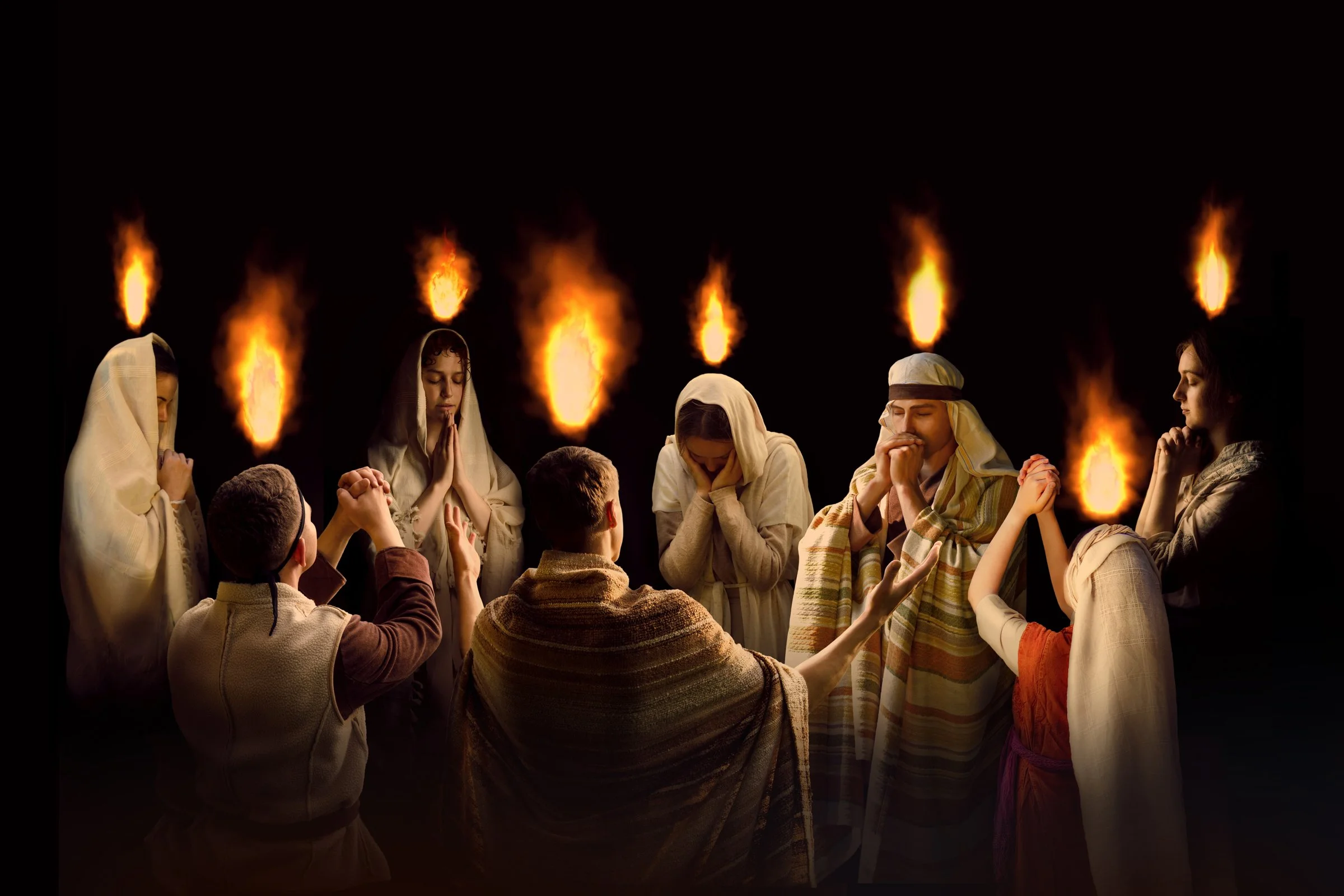The church's primary mission is to preach the Gospel, make disciples who will preach the Gospel, and make more disciples. This is the “great commission.” However, making disciples has an objective: to bring people into the Kingdom of God. The Kingdom of Heaven and the Kingdom of God are used more than one hundred times in the New Testament. The book of Matthew uses the terms “Kingdom of Heaven” and “Kingdom of God” interchangeably. The other three gospels use the term “Kingdom of God” exclusively. The Hebrew word for “heaven” is shamayim, which the Jewish people used as a circumlocution (substitute) for the name of God. So, the Kingdom of Heaven is also a reference to the Kingdom of God—they are the same.
The Body of Christ
The church is not an organization, although it requires structure and leadership. The church is a living organism, a living being whose divine life is fueled by the indwelling Spirit of Christ. After the resurrection, Jesus ascended to the right hand of His Heavenly Father. Still, in a real tangible sense, He is continually manifested in the world through His body and, by which He fulfills His early mission. We read, “So then, after the Lord had spoken to them, He was received up into heaven, and sat down at the right hand of God. And they went out and preached everywhere, the Lord working with them and confirming the word through the accompanying signs. Amen” (Mark 16:19-20).
The Great Assembly
The study of the church, including its nature, ordinances, ministries, mission, and governmental structure, is called Ecclesiology. Evolving from the Scottish word kirk, the English word “church” derived from the Greek Kuriakos, meaning “belonging to the Lord.” It is found only twice in the New Testament, an adjective applied to the Lord’s supper and the Lord’s day. The frequent word ekklesia was translated into the English expression “church” that we employ in the New Testament today. Neither Kuriakos nor ekklisa were used to refer to a building or place of gathering until the Greeks, in post-Apostolic times, substituted the term kuriakos, meaning “the Lord’s House,” to designate a church building. In the New Testament, the words used for a religious place of assembly are exclusively temple or synagogue.
Reconnecting The Church to Israel
Throughout history, the church has sought to understand Israel’s place in God’s Kingdom, and the re-establishment of the state of Israel in 1948 has made this issue even more pressing. But the separation of the church from its Hebraic origins drove it into a period of great darkness. This was only exacerbated by an abyss of unbelief and skepticism caused by “the Enlightenment” (Aufklarung in Germany) that had opened in the West, culminating in self-centeredness, self-worship, and a rise in humanism during the Renaissance.
The Gifts of The Spirit
Three chapters in the New Testament are dedicated to the gifts of the Spirit, and over one hundred references to Spiritual gifts. These gifts were promised to the church, as we read: “Behold, I send the Promise of My Father upon you” (Luke 24:49). And this promise was fulfilled on the Day of Pentecost, as we read: “And they were all filled with the Holy Spirit and began to speak with other tongues, as the Spirit gave them utterance” (Acts 2:4). The ministry work of the Apostles was marked by the supernatural, and they were given divine power to perform it. Sharing the Gospel, delivering people from bondage, and guiding them in faith and repentance require the Holy Spirit.
Israel and The Church
The Lord spoke to Jacob, saying, “Your name shall no longer be called Jacob, but Israel; for you have struggled with God and with men, and have prevailed” (Genesis 32:28). Here in Genesis, for the first time, we hear the name “Israel” given by God Himself to Jacob, the patriarch of twelve sons who would become the twelve tribes of Israel.
Recapturing a Lost Generation
On the Day of Pentecost, Peter declared: “And it shall come to pass in the last days, says God, That I will pour out of My Spirit on all flesh; Your sons and your daughters shall prophesy, Your young men shall see visions, Your old men shall dream dreams” (Acts 2:17). He was quoting the book of Joel verbatim.
We Shall Judge Angels
I often hear people say, “it’s not for me to judge another person,” even when they know they are acting sinfully. They cite the words of Yeshua, where He said, “Why do you look at the speck in your brother’s eye, but do not consider the plank in your own eye?” (Matthew 7:3).
The Great Exodus
One of the most profound stories in human history is how God miraculously delivered the children of Israel from their bondage in Egypt. At that moment, they became His people, heritage, and His Holy nation. Never had this happened to any group of people, and still, the Lord made a promise that one day He would do something even more spectacular and demonstratively powerful.
Justice, Kindness, and Truth
Yeshua said: “I am the way, the truth, and the life. No one comes to the Father except through Me.” (John 14:6). Yeshua is the way to eternal life. That is clear. But what is the truth? Pontius Pilot, the governor of the Roman province of Judaea, asked Jesus the same question.
The Day of The Lord
“The great day of the Lord is near; It is near and hastens quickly. The noise of the day of the Lord is bitter; There the mighty men shall cry out. That day is a day of wrath, a day of trouble and distress, a day of devastation and desolation, a day of darkness and gloominess, a day of clouds and thick darkness” (Zephaniah 1:14-15, NKJV).
Mystery of the Gentiles
The Apostle Paul spoke of several mysteries in his epistles to the church. These mysteries were in essence, God’s hidden wisdom concealed from humanity, until the time He would choose for its revelation;[i] as it is written, “But we speak the wisdom of God in a mystery, the hidden wisdom which God ordained before the ages for our glory, which none of the rulers of this age knew; for had they known, they would not have crucified the Lord of glory” (1 Corinthians 2:7-8).













